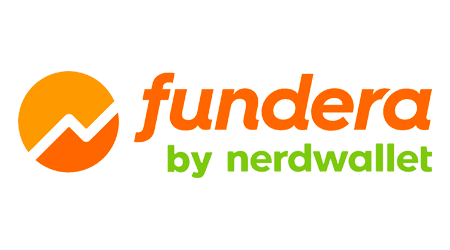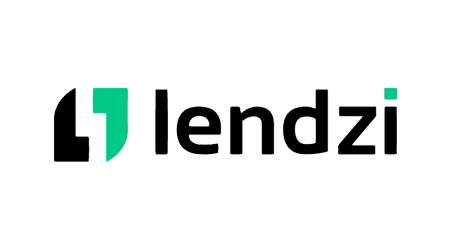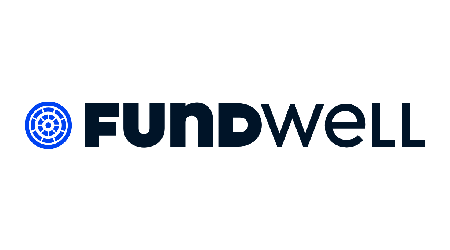Whether you need a long-term loan, a line of credit or a business cash advance, $500,000 loans come in many flavors. But you generally need to be in business for at least one to two years and have high revenue to qualify. Compare providers to make sure you’re getting the most competitive rates and terms before you apply.
Where to get a $500,000 business loan
Most lenders offer $500,000 business loans, including banks, credit unions and online lenders. Established businesses might find more competitive rates on a business loan of this size with a large national bank. Newer businesses might want to try applying with alternative online lenders and SBA loan providers.
Compare $500,000 business loans
Select your time in business, annual revenue and credit score ranges to find lenders you might qualify with. Select Go to site to get started on your application. Or, visit our review page by clicking More info.
Compare other products
We currently don't have that product, but here are others to consider:
How we picked theseWhat is the Finder Score?
The Finder Score crunches 12+ types of business loans across 35+ lenders. It takes into account the product's interest rate, fees and features, as well as the type of loan eg investor, variable, fixed rate - this gives you a simple score out of 10.
To provide a Score, we compare like-for-like loans. So if you're comparing the best business loans for startups loans, you can see how each business loan stacks up against other business loans with the same borrower type, rate type and repayment type.
How to get a $500,000 business loan
The application process varies depending on the lender you end up with. But you’ll generally follow these steps to find a lender that fits your business’s needs and apply for a $500,000 loan.
- Determine the type of loan you need. Before you start comparing, decide what type of loan you need. If you’re funding a one-time cost, look for a term loan. If you have ongoing expenses, you may want to consider a line of credit with a limit of $500,000 or more.
- Compare lenders. Find and compare multiple lenders that offer $500,000 loans by looking at the loan’s APR, terms and requirements. Also, do you need the money right now, or do you have some time? Online lenders can get you funding fast, while banks tend to offer less expensive loans but have a longer application process.
- Check your eligibility. Online lenders often have a form you can fill out online to find out if you’re eligible and check your rates. But if you’re applying through a bank, you might have to call in to make sure your business is eligible for a $500,000 loan before you apply.
- Gather the required documents. It helps to have your personal and business tax returns, profit and loss statements and bank statements ready when you first fill out the application to help answer questions. You might also need to submit these documents digitally or physically.
- Fill out the application. This can take a few minutes to over an hour, depending on the lender and type of loan.
- Submit any additional information. Your lender will review your application and reach out for more information or documents if needed. Usually, you can submit these online, by mail or in person at a branch.
- Read and sign the contract. Review your final offer, making sure the rates, terms and monthly payments fit your business’s budget. If you agree, sign and submit your contract.
The turnaround time on $500,000 loans is often longer than for smaller loan amounts. While some lenders advertise a 24-hour turnaround time, receiving your funds could take a few business days to a week or more, depending on the lender and the type of business loan.
How to qualify
To qualify for a business loan of this size, you and your business must typically meet the following criteria:
- At least one year in business. Most lenders require you to be in business for one to two years. You might get away with six months in business for smaller amounts, but lenders tend to require more established businesses for larger loans.
- Minimum monthly revenue. Revenue requirements vary significantly, depending on the lender, the loan type and the loan term. Some lenders may consider revenue as low as $250,000 a year on a large loan with a longer loan term, but others may expect substantially more.
- Good personal credit. Business lenders often rely on personal rather than business credit scores. You generally need a credit score of 670 or higher, although 720 or more is better for a $500K loan.
- A personal guarantee. It’s also common for lenders to ask for a personal guarantee from the business owner(s) — especially for unsecured loans that aren’t backed by collateral. However, some loans or lenders may not require them. For example, you can find lines of credit with no personal guarantee.
How much does a $500,000 loan cost?
Since $500,000 business loans tend to have tight credit requirements, you’ll likely qualify for a competitive rate if you qualify for this loan.
Depending on your business’s financials and your credit score, you can expect an APR on the lower end of the spectrum of business loan rates for term loans, starting around 8%. Or, If you apply for an SBA 7(a) loan, rates are capped at the prime rate plus 3% for loans over $350,000.
You may also have to pay fees on top of interest, such as origination fees up to 5% of the loan amount or prepayment penalties if you plan to repay the loan early. Different loan types come with other fees, so be sure to ask about any additional fees that add to the loan’s cost.
Use our business loan calculator to find out how much your loan might cost based on different rates and terms.
Business loan calculator
See how much you'll pay|
Your loan
|
|---|
| Loan amount |
|
$
|
| Loan terms (in years) |
|
|
| Interest rate |
|
%
|
Fill out the form and click on “Calculate” to see your estimated monthly payment.
or
Compare business loans nowBased on your loan terms
| Principal | $ |
|---|---|
| Interest | $ |
| Total Cost | $ |
How do payments on a $500,000 loan work?
It depends on your loan. Most $500,000 loans are term loans, which come with fixed monthly repayments. Some short-term business loans come with biweekly, weekly or even daily repayments, though short-term loans in such a high amount aren’t as common.
8 types of business loans
Term loans
Term loans provide a lump sum and usually have fixed interest rates and equal monthly payments. There are both short-term and long-term options, although, with a $500K business loan, a long-term loan may be the better move, with loan terms of up to 25 years. Term loans are one of the most popular types of business loans, and with good credit and strong financials, you could see rates starting as low as 6% to 8%.
Consider if you…
- Have a large expense in mind
- Know exactly how much you need
- Are looking for a long term loan
Consider other options if…
- You’re not sure how much you need
- You prefer renewable financing
- You don’t meet lender requirements
Business lines of credit
A business line of credit works much like a credit card, where you can borrow money as you need up to your credit limit and only pay interest on the funds you use. Plus, once you pay back borrowed funds, that amount is available for you to borrow from again. Business lines of credit are usually unsecured — meaning you don’t need collateral — but higher borrowing limits may require some security in the form of collateral or a personal guarantee. Business LOCs typically have terms of 24 months or less.
Consider if you…
- Aren’t sure how much you need
- You have ongoing expenses
- Need an emergency fund
Consider other options if…
- You need a lump sum of cash
- You want a longer repayment term
- You don’t need renewable financing
SBA loans
SBA loans are business loans provided by banks and credit unions but backed by the federal government’s Small Business Administration (SBA). If you can’t make your payments, the government covers up to 90% of the amount you owe, depending on the loan. This guarantee can make it easier for some small businesses to qualify. But requirements are strict, the loan process can be lengthy and some SBA loans require a down payment.
Consider if you…
- Have trouble getting other types of financing
- Can meet SBA requirements
- Aren’t in a rush for funding
Consider other options if…
- You qualify for other financing
- You don’t meet SBA requirements
- You need fast funding
Equipment loans
Equipment loans are a type of secured loan where the purchase is the collateral. And because it’s secured, you can often qualify for a better rate than with an unsecured loan. But some lenders may require a down payment, and you risk losing the asset if you can’t make the payments.
Consider if you…
- Need to purchase equipment
- Know how much you need to borrow
- Have cash for a down payment, if needed
Consider other options if…
- You don’t need equipment
- You prefer an unsecured loan
- You don’t have cash for a down payment
Commercial real estate loans
For borrowers looking to purchase property, a commercial real estate loan is usually the way to go. It’s basically the same as a residential mortgage and has similar terms as well, in that the loan is secured by the property, it has a fixed rate and you repay it in equal monthly installments. Plus, rates are typically better than with unsecured loans of this size. But you’ll likely need to come up with a down payment of at least 10%, and there’s always the risk of losing the real estate if you can’t afford the payments.
Consider if you…
- Plan to purchase a commercial property
- Can meet the loan requirements
- Have money for a down payment
Consider other options if…
- You’re not buying real estate
- You don’t meet the loan requirements
- You don’t have the down payment
Business cash advances
A business cash advance, also known as a merchant cash advance or revenue advance, is an advance based on a percentage of future sales or revenue. They’re typically used by businesses with a lot of debit or credit card sales, and they’re not technically loans. Instead, you’re basically selling your future sales. Business cash advances can offer fast funding, but they often require weekly or daily repayments and they’re one of the most expensive forms of business funding.
Consider if you…
- Have a high volume of card sales
- Don’t qualify for cheaper funding
- Can manage the repayment schedule
Consider other options if…
- Your average monthly revenue is low
- You qualify for less expensive financing
- You can’t handle the payments
Invoice factoring
Invoice factoring involves leveraging your invoices in exchange for a lump sum of cash. Instead of taking out a loan, you sell your outstanding invoices to a factoring company for a percentage of their worth. As customers pay their bills, the factoring company sends you the remaining balance minus its fees. While invoice factoring offers fast funding and is relatively easy to qualify for, it’s a very expensive type of financing.
Consider if you…
- Are a business-to-business (B2B) company
- Have substantial unpaid invoices
- Can’t qualify for cheaper financing
Consider other options if…
- You qualify for cheaper funding
- You aren’t a B2B company
- You don’t have many unpaid invoices
Invoice financing
Similar to invoice factoring, invoice financing also uses your unpaid invoices to secure financing. But instead of selling your outstanding invoices, you take out an advance based on their value and repay the lender, plus fees, as your customers repay you. The repayment schedule can be rigorous, with weekly or daily repayments, and it’s expensive, but it allows you to maintain control of your customer’s invoices.
Consider if you…
- Invoice other businesses
- Have a lot of outstanding invoices
- Don’t qualify for less expensive funding
Consider other options if…
- You qualify for cheaper funding
- You aren’t a B2B company
- You want to maintain control of your invoices
Secured vs. unsecured business loans for $500K
Business loans can either be secured or unsecured. Most $500,000 business loans require some kind of collateral — especially if it’s an equipment loan or for commercial real estate. However, it’s possible to get an unsecured business loan of $500,000 from select online lenders.
Typically, you’ll need a higher credit score and stronger business financials to qualify for an unsecured business loan. You might also need at least two years or more in business for approval.
How to get a $500K business loan with bad credit
You may be able to find $500,000 in business financing with poor credit if you apply for a merchant cash advance, invoice factoring or invoice financing. However, you’ll need the revenue or unpaid invoices to support this loan amount.
You may also want to look into other business loans that don’t require a credit check, but you’ll likely need strong financials to qualify and you can expect to pay higher rates and fees.
In general, term loans and lines of credit of this size are not available to business owners with poor credit. However, a few lenders offer bad credit business loans that may reach as high as $500K.
Bottom line
You’ll typically need good credit, at least a year in business and strong revenues to get approved for a business loan of this amount, even if it’s secured with collateral. Compare top lenders and get prequalified to get the best rates and terms for your situation.
Frequently asked questions
Can I get a $500,000 SBA loan?
Loans backed by the Small Business Administration (SBA) offer low rates and high loan amounts to businesses that have a hard time qualifying elsewhere. But they also come with some of the highest rejection rates in the market, and you may be required to make a down payment.
Can I get a $500,000 loan to start a business?
Possibly, but it’s rare for a startup or new business to qualify for a high-dollar startup business loan with decent rates.
Other business loan amounts:
Ask a question
More guides on Finder
-
8 Best Commercial Truck Loans (2026)
Best financing options for trucking companies to cover licensing, new trucks, insurance, vehicle maintenance and more.
-
How to Get a Million Dollar Business Loan in 2026
We look at eligibility requirements, potential costs, SBA options and more.
-
$50K No-Doc Business Loans: Fast Funding, Apply Today (2026)
Compare $50,000 no-doc business loans for an expedited lending process.
-
How to Get a $5,000 Business Loan (2026)
Compare $5,000 business loans and what you need to qualify.
-
How to Get a $400,000 Business Loan in 2026
Compare different lenders to secure a $400,000 business loan with favorable terms.
-
Compare $40,000 business loans (2026)
Find a $40,000 business loan for your business and calculate the cost before you apply.
-
How to Get a $10 Million Business Loan in 2026
Buy real estate, another business or expand your enterprise.
-
How to Get a $3 Million Business Loan in 2026
You’ll have an easier time qualifying if you have strong credit and high revenue.
-
How to Get a $5 Million Business Loan in 2026
Find financing to grow your business — or even buy another.
-
Compare $10,000 Business Loans in 2026
Stay away from big banks for a loan of this size.





